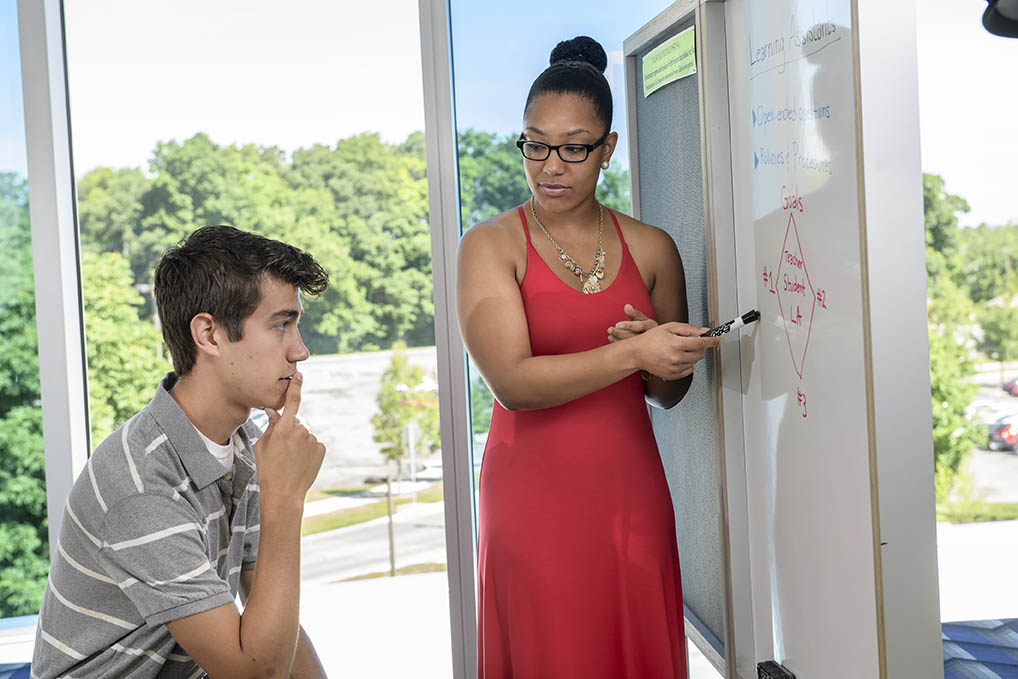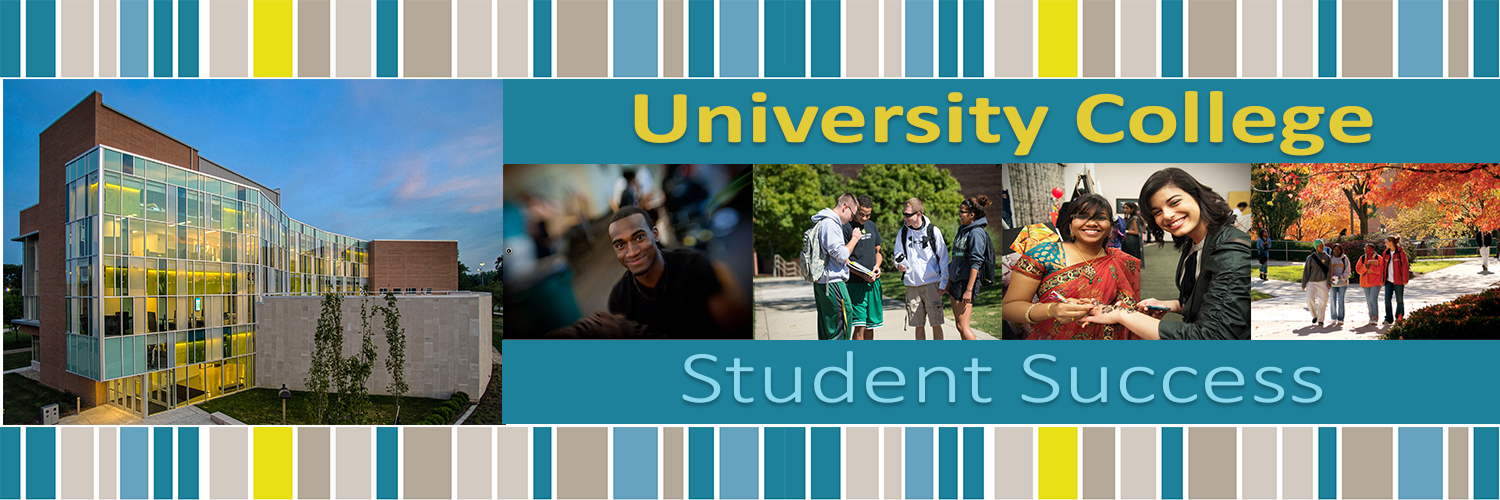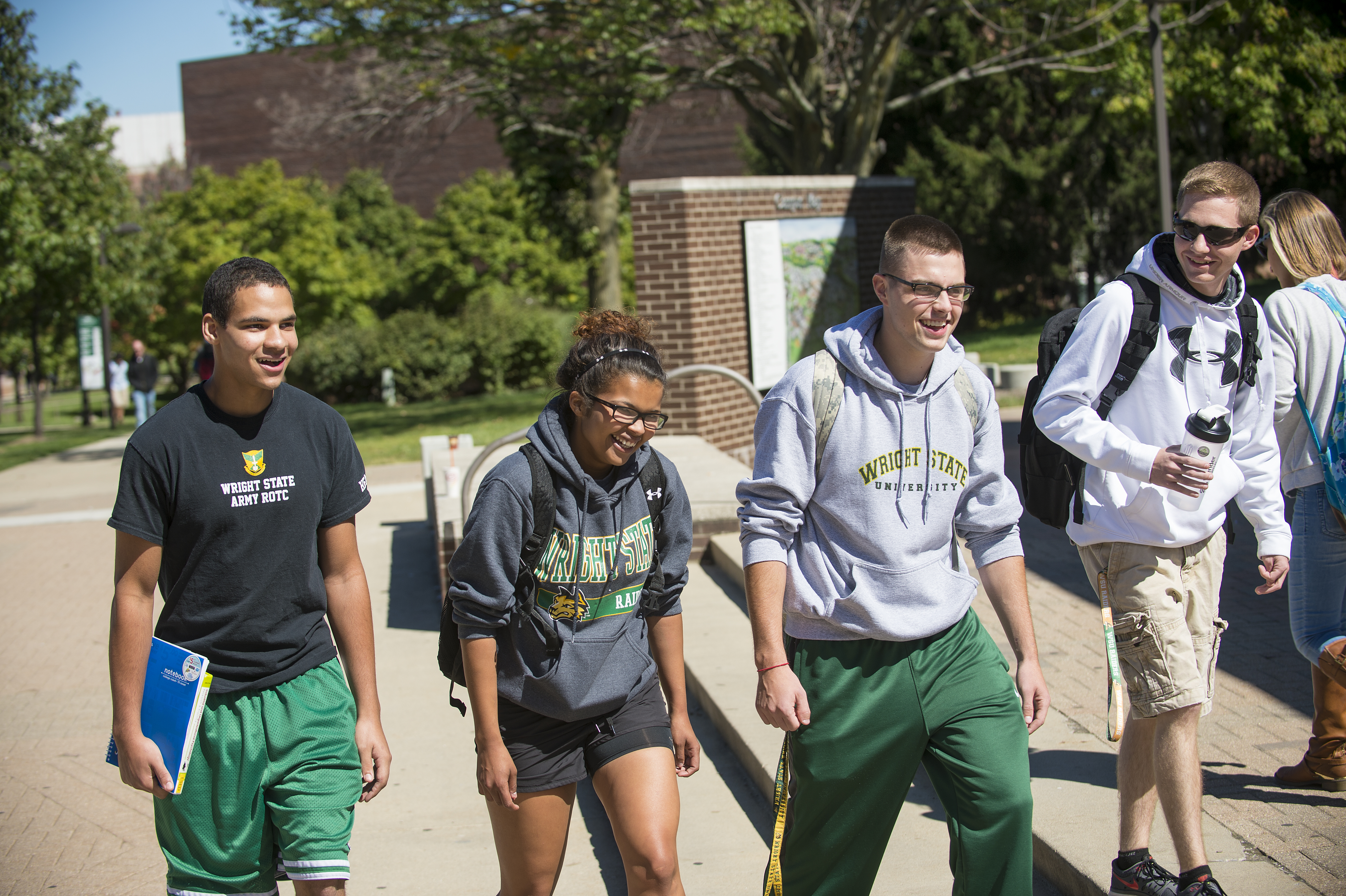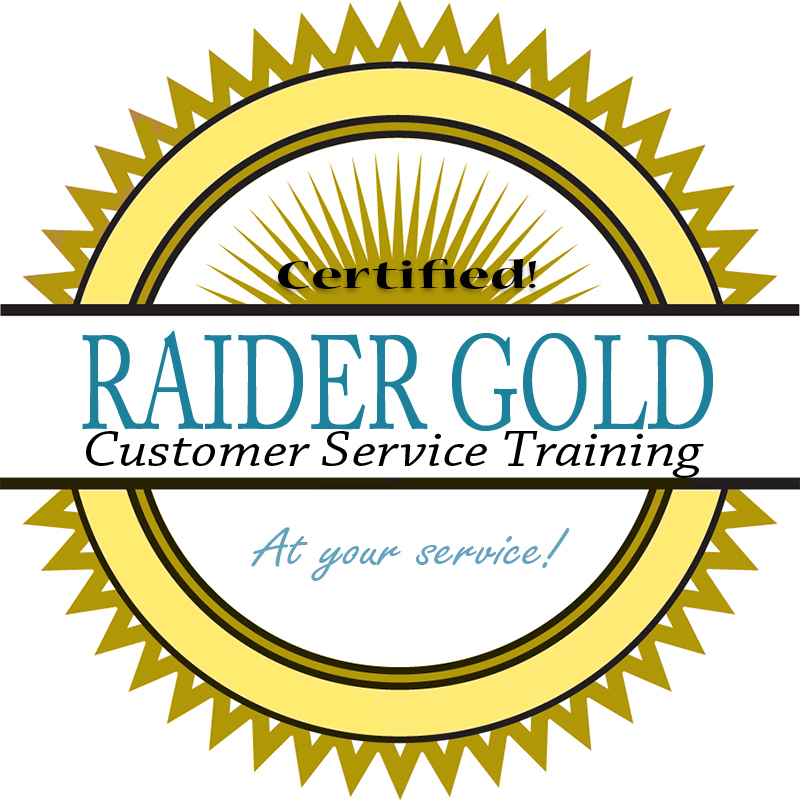University College Spring/Summer 2016 Newsletter
Table of Contents:
From Dr. Sudkamp
Learning Assistant Program
Learning Assistant Interview with Nathan Price
Raider Academy 2016
Raider Gold Customer Service Training
From Dr. Sudkamp
Spring/Summer 2016
 Across campus colleges are ramping up for the busy summer orientation season, welcoming new students. Our focus in University College is on helping prepare students for the transition to higher education and providing academic support throughout their college career.
Across campus colleges are ramping up for the busy summer orientation season, welcoming new students. Our focus in University College is on helping prepare students for the transition to higher education and providing academic support throughout their college career.
In its inaugural year, Raider Academy is being held June 13 – 24. The two-week residential enrichment program is designed to introduce students to university academics, with focused Math and Writing programs, to increase awareness of campus resources, and familiarize them with the Wright State community.
Partnerships with the University Library, Bolinga Black Cultural Resources Center, and the Career Center enhance the foundational academic support services University College offers all students. In collaboration with a campus committee, First-Year Seminars have been refined for Fall 2016 to focus on learning outcomes including establishing a collegiate identity, academic integrity, wellness, learning strategies, course planning for program completion, and critical thinking. The office of First-Year Programs has completed the new Connections text highlighting these goals.
To support the Active Learning classrooms in the Student Success Center, the Learning Assistant program was launched in the Student Success Center and has grown significantly during its first academic year. More information about the history and future growth of the program is outlined in this newsletter, along with a profile of one of our student learning assistants.
Our proactive advising was enhanced with the spring launch of the upgraded Raider Academic Progress System. The comprehensive Student Success Collaborative Campus (SSC) provides the technology infrastructure to combine early alerts, course and activity attendance, and enhanced communication service to facilitate our proactive advising strategies. Meeting students where they are is essential to success and the new SSC Guide mobile platform offers services within an interface readily embraced by students.
We look forward to a productive summer and exciting fall semester for University College and all of our campus constituents.
Learning Assistant Program
New classroom space in the Student Success Center building offered opportunities for faculty to pursue an active learning model of instruction. Four active learning classrooms were designed to provide a total of 522 seats, with 6 laptops per table and multiple projection screens. Additionally, a 225 collaborative seating auditorium is also available. To support faculty and students in this new environment, University College, in collaboration with the College of Science and Math, launched the Learning Assistant (LA) program in Fall 2015 based on the University of Colorado Boulder model. The Learning Assistant model is built on the understanding that learning requires students to articulate and defend their ideas. Learning Assistant supported courses provide regular opportunities for students to engage with each other in small groups using challenging curricular materials that help students to get closer to full understanding of the material. The primary role of a Learning Assistant is to facilitate these collaborative environments with the help and support of the instructor of the course. As outlined by the University of Colorado (Learning Assistant Program, http://laprogram.colorado.edu/node/8), the program seeks to achieve four goals:
- Curriculum & Course Transformation: to engage and support faculty in making transformations to their courses to improve the quality of education for undergraduates.
- Teacher Recruitment & Preparation: to recruit and prepare talented math, science, and engineering majors for careers in teaching.
- Institutional Change: to transform departmental cultures to value research-based teaching for ourselves and for our students.
- Discipline-Based Education Research: to continually measure the outcomes of our transformations.
Initially intended to support STEM studies, the vision and leadership of Dr. Kathrin Engisch, Interim Dean of the College of Science and Math, has been instrumental in expanding the program to include any course offered in the active learning classrooms. The Center for Teaching and Learning provides workshops and support to faculty interested in conducting large-scale, active learning classes with the central focus on students working in groups.
Learning Assistants are trained to work with students on group activities as part of an instructional team. Valerie Brown, Tutoring Service and Supplemental Instruction Specialist, organized the Wright State program and conducted training for 35 students in Fall 2015 and 30 students in Spring 2016 based on the University of Colorado Boulder model.
Combined with her role in training students to be Supplemental Instructors, the responsibility of managing the new Learning Assistance program positions Valerie to work closely with faculty to ensure University College is providing the services faculty members need to meet their course goals.
Faculty using Learning Assistants agree to:
- Use LAs to promote interaction and collaboration among students enrolled in the course
- Meet in weekly planning sessions with the LAs who support their courses
- Evaluate transformations and assess learning in their courses
As the program continues to grow in Fall 2016, faculty interested in utilizing Learning Assistants in their classrooms will be able to complete an online application at wright.edu/LA-faculty-app
Learning Assistant Interview - Nathan Price
Year: Sophomore
Major: Biology
LA Class: Chemistry 1210
Faculty Advisor: Michelle Newsome

What interested you most about becoming a Learning Assistant?
I’ve always thought that I enjoyed teaching and helping people understand the material. I [have] kind of considered a career in education, but then I decided not to. This will be a good way for me to keep what I have learned about my teaching skills [be]cause I kind of want to be a doctor. You still need to teach your patients how to change their lives or their lifestyles to make it healthier after any procedures they may have.
What has been the most surprising or inspiring part of the position for you?
The surprising part is the number of students who don’t care and it’s very difficult to get them involved. That’s been one of the biggest challenges. They are just there because they have to take [the class] for their degree and it’s not really related to their degree. So, it’s very difficult to get them involved but, this is the first time general chemistry was put into the learning assistant category. Now that we’ve gone through it, we’ve developed approaches to get them involved. I’m thinking that next semester is going to go [even] better.
What are some things you might improve on in the upcoming semester?
We’re going to be more proactive in identifying if they are going to get along. It’s better to switch the groups in the beginning of the semester than later. So, we’re going to be a little more proactive in the beginning of the semester in determining if they are going to work well together or not. Some students, they were really good, but they just dominated the table and everyone else just let them do the work. If we see that happening, we’re going to [approach] them early on, before that culture gets set up at the table [and] how it’s run, stop it, so that they can all work together. The earlier you encourage the right learning environment, the longer it will stick and develop. Once the pattern develops [at] the table in how they do their in class activities, and stuff, it’s going to be hard to change it.
Have there been teaching moments for you as well as the students you’re assisting?
The open-ended questions for sure. This allows me to see what the student or patient (someday) actually knows. And then I can use this in my career choice to see if they actually understand what I’m about to do to them, or what they are still confused about.
Some students are a little shy and prideful at times and I think what the learning assistants need to try and do is, after class, if [learning assistants] know if some students are struggling, just stay with them for ten or fifteen minutes after class to just go over the material one-on-one if they have to. Some of the students need more one-on-one than the others and are just too shy to ask anyone else at the table. We’re going to try to get them to be friends with at least one other person to talk to outside of class, but sometimes they may just need that one-on-one with the learning assistant too.
Are there any experiences you’d like to share?
There was one student in particular last year who had not done well on the first two exams. There was a class exam coming up and I spent a lot of one-on-one time with him after and during the class. He ended up scoring very well on the third exam and pretty well on the final. I think he got a C [in the class], which is what he was hoping for. He was on track to get an F, but he got a C, so that was really good for him. It was worth putting in the effort. It required a lot of before class reading for me to make sure I knew exactly what I was talking about so I didn’t have to look at it myself before I taught him. I had to know everything before I talked to him because it would just make it quicker for him to understand, and if I got confused, it would confuse him even more.
Raider Academy 2016
A new residential experience designed for incoming freshman, Raider Academy is a two-week program that aims to help students adjust, achieve, and explore Wright State at no cost to families! This enrichment program introduces university academics, campus resources, and the Wright State community. Designed for active learning, students will participate in hands-on learning experiences with a healthy balance between work and play. Students will build a strong academic foundation in math, writing, information literacy, and critical thinking while strengthening self-confidence and gaining tools for success.
Raider Academy kicks off with orientation, scheduling classes for Fall 2016, and meeting with an Academic Advisor. Not only do students have the unique opportunity to retest and achieve higher level placement in math and writing, but each student’s schedule at Raider Academy is individually prescribed based on test scores and academic criteria, intentionally placing students in tracks that are best suited for their individual needs. Evening and weekend programs are led by enthusiastic staff and student leaders, focused on building community, exploring diversity, and encouraging leadership. We are so excited to kick off this new program with the 60+ students who are registered for our inaugural Raider Academy!
Raider Gold Customer Service Training
I've learned that people will forget what you said, people will forget what you did, but people will never forget how you made them feel.” – Maya Angelou
People remember great customer service. It lets them know they are valued, builds trust, reduces problems, and defines the experience of Wright State. Great customer service means maintaining high standards and training all representatives to realize the importance of their roles.
Student employees are often at the front line of customer interaction. With the launch of a new program called Raider Gold, University College is committed to ensuring our student staff provide gold standard service to all customers.
Earlier this year, Dawn Arnold and Sonia Hackathorne, members of our administrative staff, attended the Academic Impressions Customer Service Skill Training Conference to receive certification in Higher Education Customer Service. Modeled after service excellence programs at Coastal Carolina University, Rochester Institute of Technology, and Queens University of Charlotte, Raider Gold explores topics of professionalism, diversity, and the value of customer service to our organization. Incorporating additional information from the tutoring certification program CRLA (College Reading & Learning Association), the new training program also focuses on communication skills, active listening, referral services, and defines academic success support responsibilities.
Raider Gold requires 8 hours of student training leading to customer service representative certification designed to streamline customer service, raise awareness of expectations, and create consistency in service across all units.
Ultimately, the goal is to expand Raider Gold as a training opportunity for campus organizations interested in certifying student staff in customer service representation.




